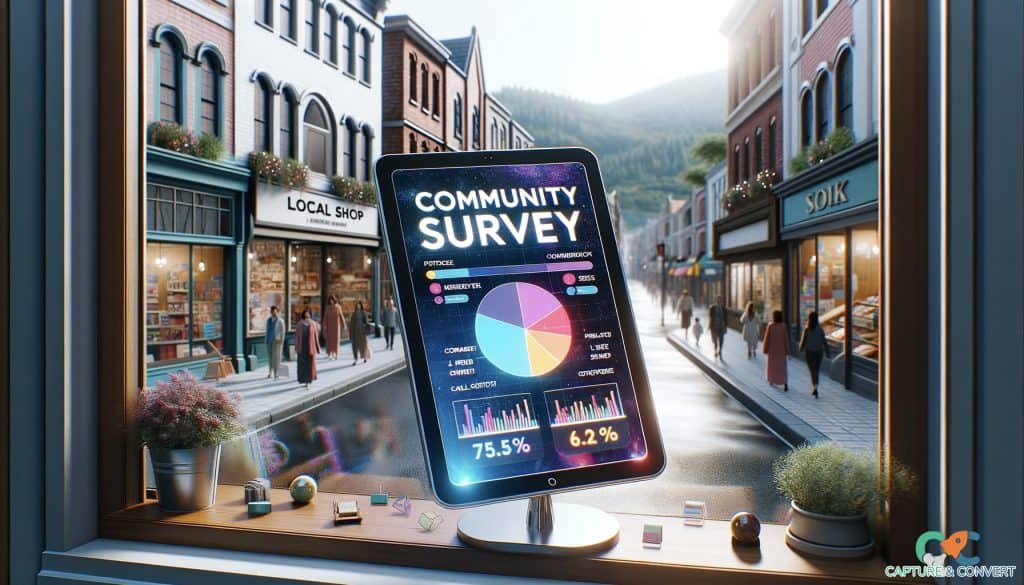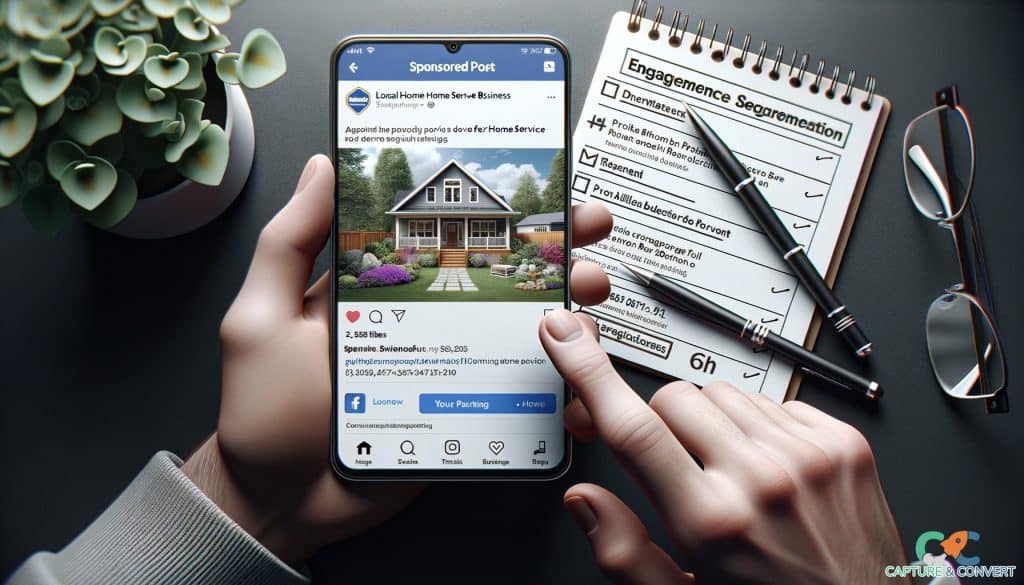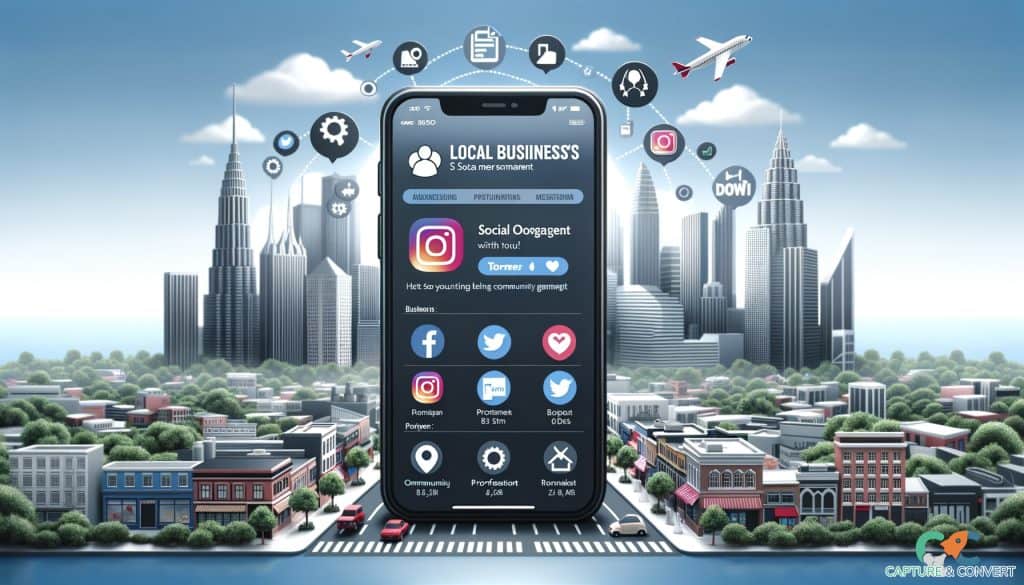Explore top strategies for local businesses to skyrocket their social media engagement. Dive into platform choices, content types, influencer collaborations, and more.
In the world of digital marketing, social media engagement refers to the interactions, such as likes, comments, shares, and clicks, that users have with a brand's content on social media platforms.
These interactions play a pivotal role in boosting local engagement as they foster a sense of community and trust among local audiences.
The pivotal role of social media platforms in increasing and developing business has been proved by a research published by Saefudin Zuhdi, Anshar Daud, Rifki Hanif, P. Nguyen and K. Shankar in the International Journal of Recent Technology and Engineering on November 2nd 2019.
When actively engaging with the local community on social media, businesses can establish a stronger online presence, enhance their brand's credibility, and ultimately generate local leads to their products or services.
In this article we will examine 13 effective social media strategies that any business can apply to increase engagement and generate leads.
Contents
- Social Media Presence vs. Engagement
- Importance of Social Media Engagement for Local Businesses
- 1. Platform Selection
- 2. Utilize Local Hashtags
- 3. Craft Engaging Content
- 4. Engage Through Polls and Surveys
- 5. Host Local Contests and Giveaways
- 6. Directly Engage With Followers
- 7. Collaborate with Local Influencers
- 8. Sponsored Posts for Enhanced Engagement
- 9. Showcase Customer Testimonials and Reviews
- 10. Champion Local Events and Charities
- 11. Prioritize Regular Posting and Consistency
- 12. Tap into Stories and Live Features
- 13. Continuously Analyze and Adapt
- Common Mistakes in Local Social Media Marketing
- Necessity of Paid Strategies for Social Media Engagement
- Managing Negative Feedback on Social Media
- Cost of Local Social Media Marketing
Social Media Presence vs. Engagement

The distinction between social media presence and engagement lies in the level of interaction and activity.
Social media presence entails having a profile or account on platforms, essentially a digital storefront.
On the other hand, social media engagement involves actively interacting, posting, and communicating with followers.
While having a presence is essential for visibility, active engagement offers amplified advantages.
It fosters meaningful connections with the audience, encourages user participation, and builds brand loyalty.
Through engagement, businesses can address customer inquiries promptly, showcase their expertise, and humanize their brand, all of which are instrumental in driving local leads and solidifying their position within the local community.
Importance of Social Media Engagement for Local Businesses
Social media engagement is of paramount importance because it directly translates into heightened brand visibility, trust, and the potential for increased sales.
By actively engaging with their local audience, businesses can ensure that their brand remains top-of-mind in the community.
This continuous interaction builds trust and credibility among local customers, who are more likely to support and recommend a business they feel connected to.
Moreover, effective engagement fosters local interactions, which, in turn, strengthen community ties and support the local ecosystem.
As local businesses engage with their audience through social media, they not only drive local leads but also contribute to the growth and prosperity of their community.
Benefits

Local engagement on social media platforms brings many benefits to businesses.
Listed below are 5 benefits of targeted local engagement on social platforms.
- Optimize Brand Visibility: Harnessing local engagement on social media enables businesses to amplify their brand visibility within the community, fostering familiarity and presence among local consumers through region-specific campaigns and interactions.
- Enhance Trust and Credibility: Engaging with the local community and showcasing authentic interactions and positive customer experiences on social media platforms build trust and credibility among local clientele, establishing the business as a reliable entity in the region.
- Boost Referral Marketing: Local engagement stimulates word-of-mouth referrals, as satisfied local customers are more likely to recommend a business within their community, acting as organic brand ambassadors on social media platforms.
- Personalize Customer Experiences: Leveraging local engagement on social media allows businesses to curate personalized interactions and develop tailored content that resonates with the community, thereby creating more meaningful and impactful customer relationships.
- Solidify Community Relationships: Engaging with local audiences on social media not only strengthens community ties but also demonstrates a business's commitment and support toward local initiatives and businesses, thereby building a positive brand image and reciprocal support in the community.
Drawbacks

Despite the benefits, there are also some challenges in employing social media platforms for growing a business.
Listed below are 5 drawbacks of using social media as a local business.
- Intensive Time Investment: The necessity to maintain an active and engaging social media presence demands a significant time investment, which may strain resources and divert attention from other critical business operations.
- Susceptibility to Negative Publicity: The public and open nature of social media platforms makes businesses susceptible to negative feedback and potential backlash, which can be damaging to the reputation if not managed adeptly.
- Challenges in Measuring Impact: Quantifying the direct impact of social media engagement on specific business metrics, such as lead generation and conversions, can pose a significant challenge, making it difficult to assess ROI accurately.
- Requirement of Constant Algorithm Adaptation: The ever-evolving algorithms of social media platforms necessitate continuous adaptation of strategies to ensure optimal reach and engagement, which may demand constant learning and strategy tweaks.
- Risk of Marketing Imbalance: The potential to become over-reliant on social media for marketing can result in neglecting other vital channels, thereby putting the business at risk should social media algorithms or policies change unfavorably.
The benefits of using social media platforms outweigh its challenges, and a strong social media strategy will greatly benefit local businesses.
Listed below are 13 social media strategies to boost local engagement.
- Platform Selection
- Utilize Local Hashtags
- Craft Engaging Content
- Engage Through Polls and Surveys
- Host Local Contests and Giveaways
- Directly Engage With Followers
- Collaborate with Local Influencers
- Sponsored Posts for Enhanced Engagement
- Showcase Customer Testimonials and Reviews
- Champion Local Events and Charities
- Prioritize Regular Posting and Consistency
- Tap into Stories and Live Features
- Continuously Analyze and Adapt
1. Platform Selection

Choosing the right social media platforms is crucial for effective local engagement.
Different platforms attract varying demographics and have unique features that can cater to local audiences.
Listed below are 5 tips to select the best social media platforms for your local business.
- Analyze Your Audience: Begin by understanding your target local audience's demographics, interests, and behaviors. Are they primarily active on Facebook, Instagram, Twitter, or another platform?
- Study Platform Demographics: Research the demographic data of different social media platforms. For instance, Facebook tends to have a more diverse user base, while Instagram is popular among younger demographics.
- Match Content with Platform: Tailor your content to match the platform. Share visually appealing images on Instagram, while utilizing informative posts on LinkedIn. Match your content style with your audience's preferences.
- Local Groups and Forums: Explore local groups, forums, and pages within the chosen platforms. Join and engage with these communities to establish a local presence.
- Paid Advertising: Consider utilizing paid advertising on platforms that align with your audience. Platforms like Facebook and Instagram offer detailed targeting options, allowing you to reach local prospects effectively.

Leveraging local hashtags is a powerful way to increase your social media visibility within your community.
By incorporating region-specific tags into your posts, you can tap into conversations happening right in your neighborhood.
Listed below are 5 reasons why using local hashtags as business are effective for social media engagement.
- Boost Local Discoverability: Local hashtags make your content more discoverable to users interested in your area. Use popular local tags related to your business or niche.
- Connect with Local Audience: Engage with the local community by joining conversations under local hashtags. Comment on posts, ask questions, and share relevant content.
- Create Branded Hashtags: Develop unique branded hashtags for your business. Encourage your followers to use these when posting about their experiences with your products or services.
- Track Local Trends: Stay updated with trending local topics and hashtags. Tools like social media listening platforms or built-in platform search features can help.
- Participate in Local Events: If your community hosts events or initiatives, use event-specific hashtags to get involved. It can enhance your presence and show support for local causes.
- Geo-Tagging: When appropriate, geo-tag your posts with your business location. This can help users find your physical store or establishment easily.
3. Craft Engaging Content

Creating content that resonates with your local audience is pivotal for effective social media engagement.
Local audiences appreciate content that provides value, reflects their interests, and promotes genuine interaction.
Listed below are 11 types of content that tend to be most engaging for local audiences on social media.
- Local Stories: Share stories about your business's journey, milestones, and contributions to the local community. Highlight your involvement and support for local causes.
- User-Generated Content (UGC): Encourage customers to share their experiences with your products or services. Repost their content (with permission) to build trust and authenticity.
- Local Events and News: Keep your audience informed about local events, news, and developments that are relevant to your industry or niche.
- Educational Content: Share tips, how-tos, and guides related to your industry. Position yourself as a knowledgeable resource.
- Behind-the-Scenes: Offer glimpses into your day-to-day operations, team members, and workplace culture. This humanizes your brand.
- Contests and Giveaways: Engage your audience with fun contests or giveaways. Make sure they align with local interests or themes.
- Local Influencer Collaborations: Partner with local influencers to promote your business. Their local following can boost your reach and credibility.
- Interactive Posts: Ask questions, run polls, or host Q&A sessions to encourage audience participation.
- Community Spotlights: Shine a spotlight on noteworthy local businesses or individuals. This fosters goodwill within the local community.
- Promotional Posts (in Moderation): While engagement-focused content is key, don't forget to share promotional content occasionally, such as special offers or discounts. Just maintain a balance.
- Consistency: Establish a content calendar and posting schedule to maintain regular engagement with your audience.
4. Engage Through Polls and Surveys

Interactive content, such as polls and surveys, is a valuable tool for local businesses looking to engage with their audience and gather actionable feedback.
Listed below are 11 benefits of incorporating polls and surveys into your social media strategy as local business owner.
- Audience Engagement: Polls and surveys are inherently interactive, encouraging your audience to participate and share their opinions.
- Feedback Collection: Use polls to gather feedback on specific products, services, or aspects of your business. This feedback can be invaluable for making improvements.
- Data-Driven Decision-Making: Survey responses can provide data and insights that inform your marketing strategies, product offerings, or customer service enhancements.
- Local Preferences: Tailor polls and surveys to inquire about local preferences, interests, or pain points. This demonstrates your commitment to meeting the needs of your community.
- Content Ideas: Ask your audience what type of content they'd like to see from you. Their input can inspire your future content strategy.
- Community Involvement: Run surveys about local events, causes, or issues to show your support for the community. Share the results to spark discussions.
- Product Development: Polls can help you gauge interest in potential new products or services, reducing the risk of launching something that doesn't resonate with your local audience.
- Build Trust: Demonstrating that you value your audience's input and are willing to act on it can build trust and strengthen your relationship with local customers.
- Engagement Boost: Interactive content tends to receive higher engagement rates, which can boost your overall social media visibility.
- Regular Interaction: Incorporate polls and surveys into your content calendar as a regular feature. This keeps your audience engaged and encourages repeat participation.
- Performance Analysis: Analyze the data you collect to make informed decisions and demonstrate that you value their input.
5. Host Local Contests and Giveaways

Hosting location-specific contests and giveaways can be a powerful strategy for engaging your local community and increasing your brand's visibility.
Listed below are 11 reasons why hosting local contests and giveways can help boost local social media engagement for local businesses.
- Community Building: Contests and giveaways that are exclusive to your local area create a sense of belonging among residents. They appreciate businesses that invest in their community.
- Local Partnerships: Collaborate with other local businesses or organizations to co-host contests. This not only expands your reach but also strengthens local business relationships.
- Local Prizes: Offering prizes that are relevant and valuable to your local audience can generate excitement. Consider partnering with local businesses to provide prizes, promoting mutual support.
- Social Sharing: Encourage participants to share their contest entries on social media, increasing your brand's visibility and potentially reaching a broader local audience.
- User-Generated Content: Contests can generate a wealth of user-generated content, such as photos, videos, or testimonials, which you can later repurpose in your marketing efforts.
- Email List Growth: Require participants to enter with their email addresses, helping you grow your local email marketing list for future engagement.
- Promote Local Causes: Align contests with local causes or charities. For example, a food drive contest during the holidays can engage the community while supporting those in need.
- Event Promotion: If you have local events or promotions, use contests to create buzz and encourage attendance. Offer tickets or discounts as prizes.
- Engage Local Influencers: Collaborate with local social media influencers or bloggers to help promote your contests to their followers.
- Follow Legal Regulations: Ensure your contests comply with local laws and regulations regarding giveaways and promotions.
- Consistent Branding: Maintain consistent branding throughout your contest, reinforcing your brand's image and message.
6. Directly Engage With Followers

Engaging directly with your social media followers is a vital aspect of building a thriving local community around your brand.
By fostering a sense of community through direct engagement, you can transform followers into loyal advocates who not only support your business but also actively participate in and contribute to your brand's local journey.
Listed below are 14 reasons why interacting with your social media followers as local business can lead to more customers.
- Timely Responses: Respond promptly to comments, messages, and mentions from your followers. Swift responses show that you value their input and care about their concerns.
- Personalization: Address followers by their names whenever possible. Personalized responses make your interactions feel more authentic and less automated.
- Show Appreciation: Express gratitude for likes, shares, and positive comments. Acknowledging your followers' support can foster a sense of belonging.
- Problem Resolution: Address negative comments or complaints with empathy and professionalism. Aim to resolve issues publicly when appropriate, demonstrating your commitment to customer satisfaction.
- Ask for Feedback: Encourage your followers to share their opinions, suggestions, and feedback. Use polls, questions, and surveys to involve them in decision-making.
- Highlight User-Generated Content: Showcase user-generated content from your followers, such as photos, testimonials, or reviews. It not only acknowledges their contributions but also strengthens community bonds.
- Behind-the-Scenes: Offer glimpses behind the scenes of your business or share stories about your team members. Humanizing your brand fosters a closer connection with the community.
- Local News and Events: Stay informed about local news, events, and trends. Sharing relevant information keeps your audience engaged and demonstrates your commitment to the community.
- Interactive Posts: Create interactive content like quizzes, challenges, or games that encourage participation and conversations among your followers.
- Share Success Stories: Highlight local success stories related to your products or services. Celebrating the achievements of your customers or partners can inspire others and create goodwill.
- Regular Check-Ins: Periodically check in with your audience to see how they're doing or if they have any questions. This proactive approach shows that you care about their well-being.
- Community Support: Promote and support local causes, charities, or initiatives that align with your brand values. Encourage your followers to get involved.
- Consistency is Key: Maintain a consistent engagement strategy to ensure your audience knows when to expect your presence and interaction.
- Monitor Social Mentions: Keep an eye on social media mentions of your brand, even when not tagged directly. Respond to indirect mentions when appropriate.
7. Collaborate with Local Influencers

Partnering with local influencers can be a game-changer for your social media engagement and brand presence.
Partnering with local influencers who genuinely connect with your target audience, will extend your brand's reach, increase engagement, and establish a stronger presence within the local community.
Influencers' authentic endorsements and content can help foster meaningful connections and trust among their followers.
Listed below are 14 benefits of collaborating with local influencers can amplify your reach within the community as local business.
- Identify Local Influencers: Research and identify influencers in your local area who align with your brand values and target audience. Look for individuals with an authentic and engaged following.
- Leverage Their Reach: Local influencers often have a dedicated and loyal fan base within the community. Partnering with them allows you to tap into their existing audience and gain credibility.
- Content Collaboration: Collaborate with influencers to create content that resonates with their followers. Whether it's sponsored posts, reviews, or co-created content, ensure it provides value and aligns with your brand message.
- Authenticity Matters: Encourage influencers to share their genuine experiences with your products or services. Authenticity fosters trust and can lead to more meaningful connections with their followers.
- Local Event Coverage: Invite influencers to cover local events, product launches, or special promotions related to your business. Their live updates and behind-the-scenes content can generate buzz.
- Contests and Giveaways: Collaborate with influencers to host contests or giveaways exclusive to their followers. This strategy not only boosts engagement but also introduces your brand to new potential customers.
- Promo Codes and Discounts: Offer influencers unique promo codes or discounts for their audience. This incentivizes their followers to engage with your brand and make purchases.
- Takeovers and Challenges: Allow influencers to take over your social media accounts temporarily. Hosting challenges or Q&A sessions with influencers can generate excitement and engagement.
- Track Performance: Use tracking tools and analytics to measure the impact of influencer collaborations. Assess metrics like reach, engagement, and conversions to determine the success of each partnership.
- Long-Term Relationships: Consider building long-term relationships with local influencers who genuinely resonate with your brand. Continual collaboration can lead to sustained community engagement.
- Transparency and Disclosure: Ensure influencers disclose their partnerships with your brand as per relevant regulations and guidelines. Transparency maintains trust with their followers.
- Local Causes and Initiatives: Collaborate with influencers on projects or initiatives that support local causes or charities. Shared values can enhance your brand's reputation within the community.
- Negotiate Fairly: When negotiating partnerships, offer fair compensation or incentives to influencers. Recognize their contribution to your brand's success.
- Regular Communication: Maintain open and regular communication with influencers. Keep them informed about your brand's updates, goals, and upcoming campaigns.
8. Sponsored Posts for Enhanced Engagement

Sponsored posts, often labeled as ads, when strategically utilized, can significantly boost engagement on your social media platforms.
Sponsored posts with a local focus can drive engagement by reaching the right audience with compelling content.
When executed strategically and measured effectively, these posts can offer a positive ROI, making them a valuable addition to your social media engagement strategy.
Listed below are 14 advantages of running sponsored posts for enhanced local social media engagement for your business.
- Define Your Audience: Begin by clearly defining your local target audience. Understand their demographics, interests, behaviors, and preferences. This information will be crucial in creating highly targeted sponsored content.
- Platform Selection: Choose the social media platforms that align best with your local audience. Different platforms may have varying degrees of engagement depending on your specific location and target demographics.
- Content Relevance: Ensure that the content in your sponsored posts is not only relevant to your local audience but also aligned with their interests and needs. Speak to their pain points and aspirations.
- Geotargeting: Use the geotargeting feature provided by social media advertising platforms. This allows you to display your sponsored posts to users within a specific geographic area, ensuring your message reaches the right local audience.
- Compelling Visuals: Visual content tends to perform exceptionally well on social media. Invest in high-quality visuals, such as images and videos, that resonate with your local audience and effectively convey your message.
- Engaging Copy: Craft compelling and concise copy that encourages engagement. Pose questions, share intriguing facts, or create a sense of urgency to prompt responses from your audience.
- Call-to-Action (CTA): Include a clear and enticing CTA in your sponsored posts. Encourage users to take specific actions, such as visiting your website, signing up for a newsletter, or participating in a local event.
- A/B Testing: Experiment with different ad formats, visuals, ad copy, and CTAs. Conduct A/B testing to determine which variations resonate best with your local audience.
- Budget Allocation: Allocate your advertising budget strategically. Monitor the performance of sponsored posts and adjust your budget based on the ads that generate the highest engagement and ROI.
- Ad Scheduling: Determine the optimal times and days for running your sponsored posts. Social media insights and analytics can provide valuable data on when your local audience is most active.
- Monitoring and Analytics: Regularly monitor the performance of your sponsored posts. Analyze key metrics such as engagement rate, click-through rate (CTR), conversion rate, and ROI.
- Feedback and Adaptation: Pay attention to user comments, feedback, and reactions on your sponsored posts. Use this information to adapt your content and strategy to better meet the expectations and preferences of your local audience.
- Conversion Tracking: Implement conversion tracking tools to measure the impact of sponsored posts on lead generation and sales. This allows you to calculate the actual ROI of your social media advertising efforts.
- Audience Segmentation: Consider segmenting your local audience based on various criteria such as location, interests, or engagement level. Tailor sponsored content to these specific segments for increased relevance.
9. Showcase Customer Testimonials and Reviews

Customer testimonials and reviews are powerful tools for building trust and credibility among your local audience.
Showcasing these real-world experiences helps to connect your business with your local audience on a deeper level, instill trust, and foster meaningful engagement.
Listed below are 15 reasons why it is important to showcase customer testimonials and reviews as local business.
- Genuine Testimonials: Collect genuine testimonials and reviews from satisfied local customers. These can include written reviews, video testimonials, or even before-and-after photos and stories.
- Diverse Representation: Ensure that your customer testimonials represent the diversity of your local community. This helps potential customers from different backgrounds relate to the experiences of their peers.
- Highlight Benefits: In your testimonials, focus on the specific benefits and outcomes that customers have achieved through your products or services. Highlight how your offerings have improved their lives or solved their problems.
- Visual Impact: Visual testimonials, such as video clips or images, can have a stronger impact than text-based ones. Consider creating short video testimonials that capture the genuine emotions and reactions of your satisfied customers.
- Case Studies: Develop in-depth case studies that delve into the experiences of local customers. Explain the challenges they faced, how your business helped them, and the positive results they achieved.
- Integration on Social Platforms: Share customer testimonials and reviews on your social media platforms. Create dedicated posts or stories that feature these endorsements, making them easily accessible to your followers.
- User-Generated Content: Encourage your customers to create user-generated content (UGC) related to their experiences with your brand. This could include sharing photos of them using your products or attending your local events.
- Engage with Reviews: Respond promptly and professionally to customer reviews, both positive and negative. Engaging with reviews shows that you value customer feedback and are committed to improving your offerings.
- Local Influencer Partnerships: Collaborate with local influencers who align with your brand values. Encourage them to share their honest experiences with your products or services with their followers.
- Feature on Website: Incorporate customer testimonials and reviews into your website's design. Create a dedicated section or page where visitors can easily access these endorsements.
- Video Testimonial Series: Develop a series of video testimonials featuring different satisfied customers. Release these videos periodically on your social media channels to keep engagement high.
- Highlight Local Impact: If your business supports local causes or initiatives, showcase how customer support contributes to these efforts. Share stories of community involvement and the positive local impact of your brand.
- Trust Badges: Display trust badges or seals on your website and social media profiles to indicate that your business is trusted and well-reviewed by local customers.
- Privacy and Consent: Ensure that you have obtained proper consent from customers before featuring their testimonials or reviews. Respect privacy preferences and guidelines regarding the use of customer content.
- Transparency: Be transparent and authentic in your use of customer testimonials. Avoid manipulation or exaggeration, as authenticity is key to building trust.
10. Champion Local Events and Charities

Collaborating with local events and charities not only contributes to the betterment of your community but also provides your brand with valuable opportunities for engagement and exposure.
By championing local events and charities, your brand can actively participate in the community, strengthen its reputation, and foster meaningful engagement.
This involvement not only benefits the causes you support but also deepens your connection with your local audience.
Listed below are 15 insights on how championing local causes and events can enhance your brand's reputation and engagement.
- Align with Local Values: Choose events and charities that align with the values and interests of your local audience. This ensures that your involvement resonates with your community and feels genuine.
- Sponsorship Opportunities: Explore sponsorship opportunities for local events and charities. Your brand logo and name displayed prominently at such events can boost visibility and association with community support.
- Event Participation: Go beyond financial contributions by actively participating in local events. Set up booths, host workshops, or provide services that showcase your brand's expertise and commitment to the community.
- Volunteer Initiatives: Encourage your employees to volunteer for local charities or causes. Share their experiences and contributions on social media to humanize your brand and inspire community engagement.
- Cause-Related Campaigns: Create cause-related marketing campaigns that tie your products or services to a charitable cause. A portion of the proceeds can be donated to the chosen charity, fostering goodwill.
- Collaborative Content: Collaborate with local event organizers or charities to create engaging content. This could include behind-the-scenes videos, interviews with organizers, or stories of the impact your involvement has had on the community.
- Promote Local Events: Use your social media platforms to promote upcoming local events, whether or not you are directly involved. Share event details, schedules, and reasons why your audience should attend.
- Community Engagement: Actively engage with your community during events or charitable activities. Encourage followers to join you, participate, or share their experiences using event-specific hashtags.
- Highlight Local Impact: Showcase the tangible impact of your support for local causes. Share success stories, testimonials, and the positive changes your involvement has brought to the community.
- Community Feedback: Seek input and feedback from your local audience regarding which events or charities they would like to see your brand support. This inclusivity can strengthen community ties.
- Long-Term Commitment: Consider establishing long-term partnerships with select local charities or events. Demonstrating consistent support over time reinforces your commitment to the community.
- Local Event Calendar: Maintain a calendar of local events and charities that your brand supports or endorses. Share this calendar with your followers to keep them informed about upcoming opportunities for engagement.
- Collaborative Giveaways: Partner with local charities for giveaway campaigns. For instance, for every share or engagement on your social media post, a donation can be made to the charity.
- Local Expertise: Leverage your local expertise to provide valuable insights or resources to event organizers, charities, or the local community. Position your brand as a knowledgeable and caring contributor.
- Transparency in Contributions: Clearly communicate how your brand's contributions or support benefit the chosen charities or events. Transparency builds trust with your audience.
11. Prioritize Regular Posting and Consistency

Consistency in social media posting is a cornerstone of effective local engagement.
Consistency in posting not only keeps your brand top-of-mind but also helps you build a reliable and engaged local following.
By implementing these strategies and using scheduling tools, you can maintain a consistent presence on social media, ultimately boosting local engagement.
Listed below are 15 reasons why regular posting matters for local businesses to get more local social media engagement.
- Audience Expectations: Regular posting establishes an expectation among your followers. They come to anticipate your content, which can lead to higher engagement and a stronger connection with your brand.
- Content Calendar: Create a content calendar outlining your posting schedule. This helps you plan and organize content ahead of time, ensuring a steady flow of posts.
- Scheduling Tools: Utilize social media scheduling tools like Buffer, Hootsuite, or Sprout Social to plan and automate posts. These tools allow you to maintain consistency even during busy periods.
- Posting Times: Determine the optimal posting times for your local audience by analyzing engagement patterns. Tools like Facebook Insights and Twitter Analytics provide data on when your followers are most active.
- Content Themes: Develop themes or categories for your content to maintain variety while adhering to a consistent posting schedule. For example, you can have "Local Spotlight Mondays" or "Tip Tuesdays."
- Engagement Metrics: Regularly review engagement metrics to assess the effectiveness of your posting schedule. Adjust your strategy based on which days and times yield the highest engagement.
- Batch Content Creation: Dedicate specific time slots for content creation where you generate multiple posts at once. This can help you stay ahead of your posting schedule.
- User-Generated Content: Encourage user-generated content (UGC) by reposting content from your local community. UGC not only saves time but also strengthens your connection with customers.
- Consistent Branding: Maintain consistent branding elements across posts, including logos, colors, and fonts. This creates a cohesive and recognizable feed.
- Content Recycling: Repurpose evergreen content or updates from the past, reintroducing them to your audience. Not all content needs to be entirely new.
- Engagement Triggers: Use engaging content formats like polls, contests, or interactive stories to keep your audience involved and coming back for more.
- Team Collaboration: If you have a social media team, establish clear roles and responsibilities for content creation, scheduling, and engagement.
- Adaptability: Be ready to adapt your posting schedule in response to current events, holidays, or local news. Staying relevant shows your brand is in touch with the community.
- Feedback Loop: Encourage feedback from your audience regarding posting frequency and content preferences. Adjust your strategy based on their input.
- Monitor Trends: Stay up to date with social media trends and algorithm changes that might affect your posting strategy. Adapt as needed to maximize reach.
12. Tap into Stories and Live Features

Social media platforms have introduced Stories and Live features that offer unique opportunities for local engagement and help to establish a more immediate and interactive connection with your local audience.
By using these features effectively, you can convey authenticity, share real-time updates, and create a sense of community among your followers.
Listed below are 15 advantages of using Stories and Live sessions as business to connect with local audiences.
- Authenticity: Stories and Live videos provide a raw, unedited glimpse into your business. Use them to share behind-the-scenes moments, showcasing the people and processes that make your local business special.
- Real-Time Interaction: Live sessions enable real-time interaction with your audience. Host Q&A sessions, live demonstrations, or even virtual tours of your local establishment to engage viewers directly.
- Urgency and FOMO: Stories disappear after 24 hours, creating a sense of urgency. Use this to your advantage by promoting flash sales, limited-time offers, or exclusive local events.
- Local Announcements: Share important local announcements or updates through Stories and Live sessions. Whether it's changes in business hours, community initiatives, or local news, these features offer a direct channel to your audience.
- Engagement Tools: Leverage interactive features like polls, questions, and quizzes in Stories to encourage audience participation. This not only boosts engagement but also provides valuable insights.
- Highlight User-Generated Content: Use Stories to showcase user-generated content (UGC) related to your business. Reposting UGC reinforces community bonds and encourages others to contribute.
- Collaborate with Local Influencers: Partner with local influencers for Live sessions or Stories takeovers. Their followers will tune in, expanding your reach within the local community.
- Event Coverage: Cover local events, whether you're hosting them or participating as a sponsor. Live streaming or sharing Stories from the event can generate buzz and engagement.
- Product Demonstrations: Showcase your products or services in action through live demonstrations. Highlight how they cater to the needs and preferences of your local audience.
- Announce Giveaways: Use Stories and Live to announce and conduct giveaways exclusively for your local followers. This incentivizes engagement and participation.
- Story Highlights: Save and organize your best Stories into Highlights. This feature acts as a portfolio of your local engagement efforts and is easily accessible for new visitors.
- Promote Stories in Feed: Share previews or snippets of Stories on your main feed to drive traffic to your Stories section. This can increase views and engagement.
- Consistency: Develop a regular schedule for Stories and Live sessions to keep your audience anticipating your content.
- Cross-Promotion: Promote your Live sessions or Stories across multiple social media platforms to maximize exposure.
- Measure Analytics: Analyze the performance of your Stories and Live content. Pay attention to metrics like views, engagement, and retention rates to refine your strategy.
13. Continuously Analyze and Adapt

In the dynamic landscape of social media, continuous analysis and adaptability are key to maintaining effective local engagement strategies.
Leveraging analytics, understanding the audience, and remaining flexible in the approach, are key steps to refine local engagement strategies to ensure ongoing success in connecting with the local community.
Listed below are 15 reasons why continuous analysis and adaptability as local business are important to get more engagement on social media.
- Utilize Analytics Tools: Employ social media analytics tools to track and measure the performance of your content. Platforms like Facebook Insights, Instagram Insights, and Twitter Analytics offer valuable data on engagement, reach, demographics, and more.
- Identify Top-Performing Content: Regularly assess which types of content, topics, or formats resonate most with your local audience. Identify your top-performing posts and analyze the elements that contributed to their success.
- Engagement Metrics: Focus on engagement metrics such as likes, shares, comments, and click-through rates. These metrics provide insights into how your audience interacts with your content.
- Audience Demographics: Understand the demographics of your local audience. Analyze age groups, locations, gender, and other relevant factors to tailor your content accordingly.
- Content Timing: Analyze when your audience is most active on social media. Schedule your posts and engagement activities during these peak times to maximize visibility.
- Competitor Analysis: Study your local competitors' social media strategies. Identify what works for them and adapt successful tactics to your own campaigns.
- A/B Testing: Experiment with A/B testing to refine your content and engagement strategies. Test variations of headlines, visuals, and calls to action to determine what resonates best with your audience.
- Feedback Loop: Encourage feedback from your local audience. Listen to their suggestions, comments, and concerns, and use this input to shape your content and engagement approach.
- Adapt to Trends: Stay updated on local and industry-specific trends. Incorporate relevant trends into your content to demonstrate your connection to the community.
- Content Calendar: Maintain a content calendar that outlines your posting schedule and content themes. This helps ensure consistency and prevents last-minute content creation.
- Experiment with New Platforms: Don't hesitate to explore emerging social media platforms that gain popularity within your local community. Be an early adopter to establish a presence.
- Stay Informed: Regularly read industry blogs, attend webinars, and participate in social media marketing forums to stay informed about the latest strategies and tools.
- Measure ROI: Evaluate the return on investment (ROI) of your social media engagement efforts. Assess whether your strategies are driving the desired results in terms of lead generation, brand visibility, and community engagement.
- Flexibility: Be adaptable in your approach. If you notice declining engagement in a particular area, don't hesitate to pivot and try new tactics.
- Data-Driven Decisions: Base your engagement strategies on data and insights rather than assumptions. Make informed decisions that align with your goals.
Common Mistakes in Local Social Media Marketing

Avoiding pitfalls in local social media marketing is crucial for success.
Designing a social media strategy that avoids the common pitfalls of social media marketing will greatly benefit businesses in the long run.
Listed below are 10 common pitfalls and their solutions.
- Inconsistent Posting: Inconsistent posting can lead to a loss of audience interest. Create a content calendar and schedule posts in advance for a steady presence.
- Ignoring Negative Feedback: Ignoring negative comments or reviews can damage your reputation. Respond promptly and professionally to negative feedback, addressing concerns and seeking resolution.
- Over-Promotion: Excessive self-promotion can alienate followers. Balance promotional content with valuable, non-promotional posts that provide insights or entertainment.
- Ignoring Analytics: Neglecting analytics means missing opportunities for improvement. Regularly analyze engagement metrics and adjust your strategy based on data-driven insights.
- Neglecting Local Trends: Ignoring local trends can result in disconnected content. Stay informed about local trends and incorporate them into your posts when relevant.
- Lack of Audience Interaction: Failing to engage with your audience can lead to disengagement. Respond to comments, messages, and mentions promptly to foster meaningful interactions.
- No Clear Goals: Operating without clear goals can lead to aimless efforts. Define specific objectives for your local social media marketing and track progress toward them.
- Inconsistent Branding: Inconsistent branding can confuse your audience. Maintain a cohesive brand identity across all social media profiles and content.
- Ignoring Local SEO: Neglecting local SEO can hinder your discoverability. Optimize your profiles and content for local search to enhance visibility.
- Overlooking Competitor Analysis: Ignoring competitors can mean missed opportunities. Regularly analyze your competitors' social media strategies and adapt successful tactics.
Necessity of Paid Strategies for Social Media Engagement

Paid strategies can certainly enhance social media engagement, but they aren't always essential.
Organic engagement remains valuable for building a loyal and authentic following. It often takes time and consistent effort but can yield long-term benefits in terms of brand loyalty and trust.
Paid strategies, such as targeted local ads, can accelerate results and reach a wider audience more quickly.
These ads are cost-effective because businesses only pay for actual engagement, and their potential ROI can be significant when effectively targeted.
The choice between organic and paid strategies should align with a business's goals, budget, and timeline, with a combination of both often providing the best results.
Make sure to also have a look at our article with the best social media advertising platforms for local lead generation to find the most suitable option for your needs.
Managing Negative Feedback on Social Media
Handling negative comments or reviews on social media requires a calm and proactive approach.
It's crucial to respond promptly, acknowledge the issue, and offer a solution or assistance.
Viewing negative feedback as an opportunity for growth and improvement rather than a setback can turn a potentially damaging situation into a positive one.
Publicly addressing the concern and demonstrating a willingness to resolve it can showcase a business's commitment to customer satisfaction and transparency.
Encouraging further communication privately can also help defuse the situation and provide a more personalized resolution.
Overall, handling negative comments or reviews with empathy and professionalism can turn a negative experience into a chance to build trust and loyalty with customers.
Cost of Local Social Media Marketing

The cost of local social media marketing can vary significantly depending on the specific strategies employed.
Small businesses may start with modest budgets for organic strategies, while larger enterprises may invest more in paid advertising and professional services.
Listed below are 5 factors that influence the cost of local social media marketing.
- Organic Strategies: Using organic strategies like regular posting, community engagement, and content creation typically incur minimal costs. It mainly involves the time and effort of in-house staff or social media managers.
- Paid Advertising: Paid social media advertising involves setting a budget for campaigns. The cost varies based on factors such as the chosen platform, audience size, targeting options, and ad format. It can range from a few dollars per day to substantial budgets for larger campaigns.
- Content Creation: Creating high-quality content, including graphics, videos, and blog posts, can incur expenses if done in-house or outsourced to content creators or agencies.
- Tools and Software: Social media management tools and analytics software can also add to the cost, but they provide valuable insights and automation capabilities.
- Paid Social Media Management: Hiring a social media management agency or specialist to handle your local social media marketing can be a significant ongoing cost.
- Ad Creative: Designing eye-catching ad creatives or promotional materials may require hiring graphic designers or creative professionals.
Outsourcing Social Media Marketing
Businesses have the option to outsource their social media marketing efforts to professional agencies or freelancers.
Outsourcing social media marketing offers several benefits.
It brings expertise in social media management, ensuring effective strategies and campaigns that drive engagement and leads.
Additionally, it saves time, allowing business owners and staff to focus on core operations while experts handle the intricacies of social media management.
Furthermore, outsourcing provides scalability, with outsourced teams adapting to the changing needs and growth of a business, offering flexibility in strategy implementation and cost management.

